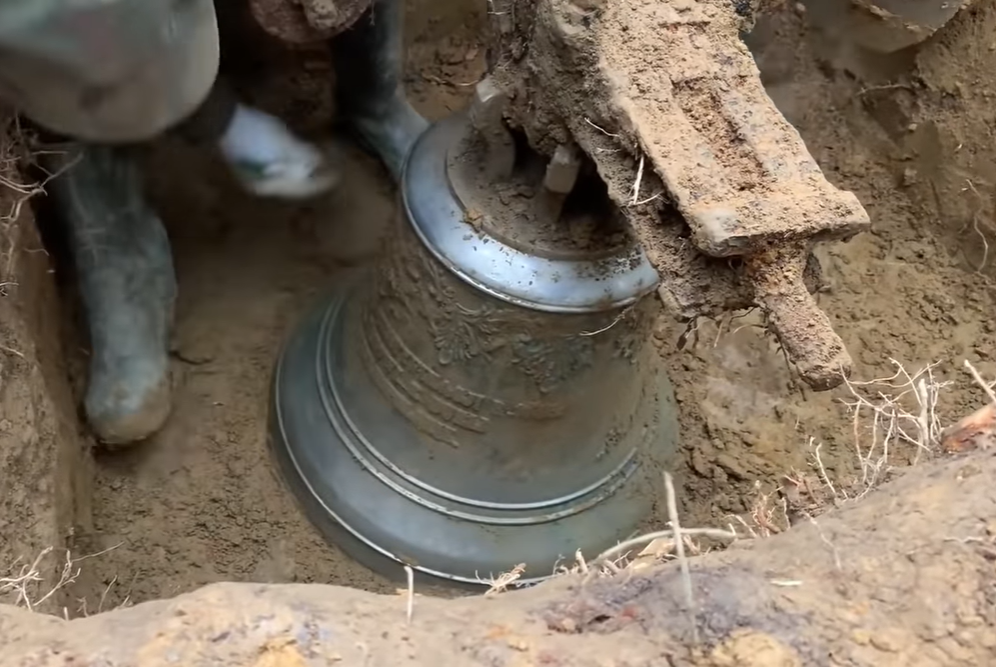A church bell that was buried by a Polish monk 80 years ago to hide it from the German occupiers during World War Two has been located and dug up by a team of researchers in Poland.
“In 1941, the Germans conducted a campaign to obtain various types of metal, because there was a demand for this raw material in order to create weapons,” Sławomir Worek, head of the Galicja Historical Association, told TVN24.
“A decree was issued to secure all bells for the Third Reich,” explained Worek. In response, a monk, Józef Ubas, ordered three bells from a chapel at the Hermitage of St John of Dukla, located in what is today southeastern Poland, to be hidden.
It is believed that one of the bells ended up in German hands nonetheless, but two were successfully hidden. “One was found immediately after the war,” said Worek. “But the second remained hidden for 80 years – until yesterday.”
The bell’s location was pinpointed thanks to research by Lesław Wilk from the Private Museum of Subcarpathian Battlefields in nearby Krosno. He combed through archives and gathered testimony from the children of now-deceased wartime residents of the area.
On Saturday, a team from the Galicja Association and museum managed to dig up and recover the 150 kilogram (330 lb) bronze bell, which was buried only around 11 metres away from the chapel that it had previously been located in.
The bell, which remains in good condition, will now undergo restoration work. It is then hoped that it will be possible to re-hang it in the belfry at the monastery, Worek said.
Researchers are also working to establish the fate of Ubas, the monk, after the war. It is believed that, like many members of the Catholic clergy in Poland, he faced repression at the hands of the newly installed communist authorities.
In a separate case last year, a 16th-century church bell plundered by the Germans during the war was returned to Poland after being tracked down by the Polish church’s pastor.
Nazi Germany melted down around 80,000 bells to make weapons during the war. Among those that survived, more than 1,300 that had been seized from occupied eastern territories such as Poland remained in Germany after the war.
Main image credit: Zwiadowca Historii/YouTube (screenshot)

Daniel Tilles is editor-in-chief of Notes from Poland. He has written on Polish affairs for a wide range of publications, including Foreign Policy, POLITICO Europe, EUobserver and Dziennik Gazeta Prawna.




















